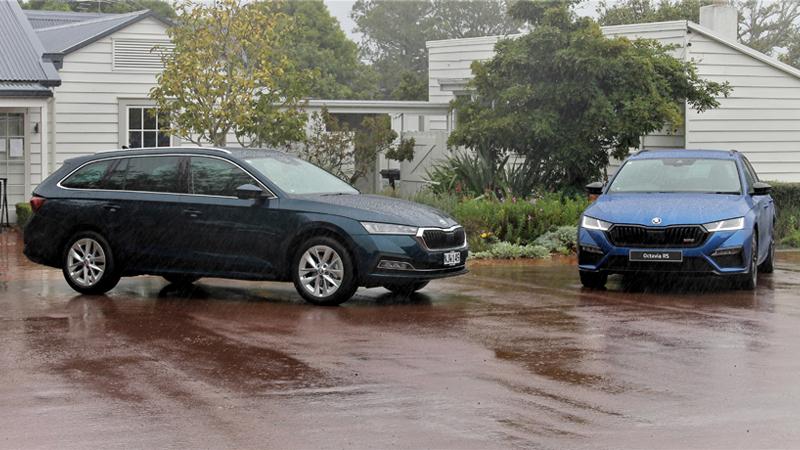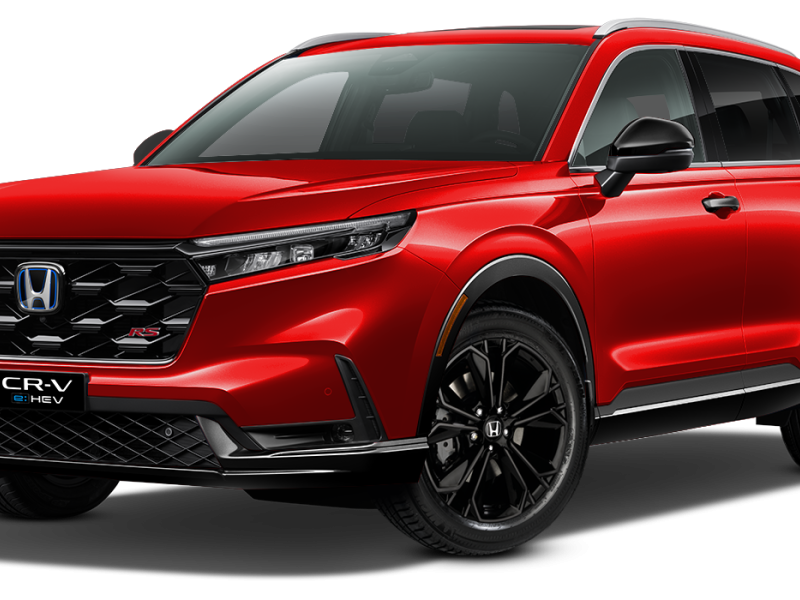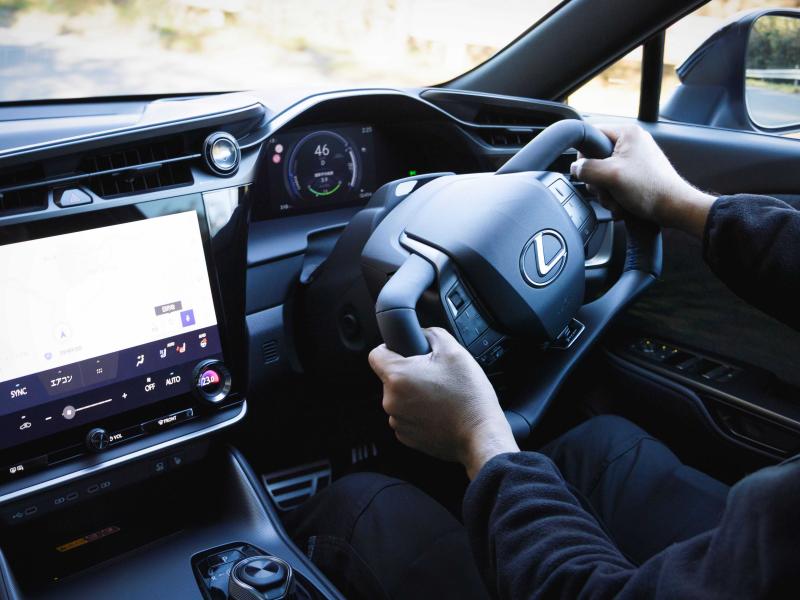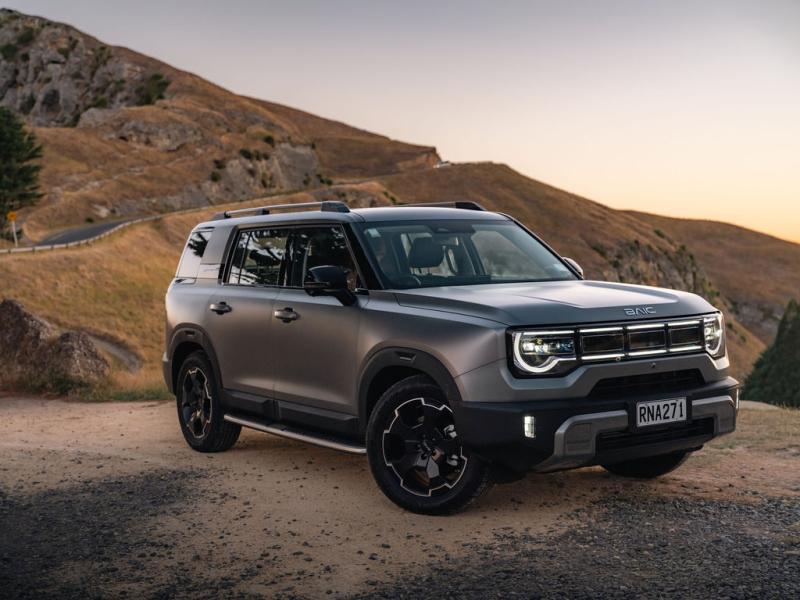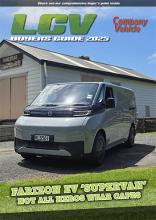With a national rollout of frontline New Zealand police cars underway, and the delivery of an ongoing transitional fleet of Corporate cabs, that ‘funny little brand out of the Czech Republic’ may not be looking quite so funny now.
Skoda NZ recently took the wraps off its latest – and technologically greatest – release, the Skoda Octavia, but before we look at that, we’re going to follow Skoda’s lead when it came to the company’s negotiating the police fleet contract, by showing what sets the brand apart and knock a few urban myths on the head at the same time.
Octavia’s local end-of-March launch coincided with a 30-year anniversary of the Skoda brand being a significant part of the Teutonic juggernaut that is the Volkswagen Auto Group (which owns Volkswagen, Bentley, Audi, Porsche, SEAT, Bugatti and Lamborghini to mention but a few).
This year, Skoda New Zealand is looking to end the year on 2200 units.
Also in 2020, the brand tendered for the New Zealand Police contract and announced its appointment as frontline vehicle supplier for the Thin Blue Line earlier this year.
As we enter quarter two, Skoda NZ announced its expansion intentions, which have come about largely through the requirements of the NZ Police, but which will benefit Skoda owners all around the country.
Increased service facilities, a more streamlined approach to the business of supplying vehicles to corporate fleets who require global automaker levels of support, increased efficiencies across the business, all of these and more are the result of Skoda’s success in the fleet/corporate market.
And this leads us neatly to the subject of this article, and Skoda’s latest release, the Octavia.
Octavia is Skoda’s oldest nameplate and the brand’s most popular seller globally, though in this part of the world, we have an SUV obsession, which puts the award-winning Kodiaq at the top of the tree, and that worthy vehicle is due for a revamp in the fourth quarter, just quietly.
But in the meantime, Skoda NZ was due to unleash a mass collection of Octavias right about now, with much pomp and circumstance, but... on the date of release, only a handful – literally seven cars – had made it to our shores, and guess what? They’re pre-sold. Was this a massive sales gaffe?
No, actual genuine circumstances outside of New Zealand’s control.
The first issue is chips, super conductor chips, and a problem for a large number of auto manufacturers in addition to Skoda. The Octavia is the first of the new generation Skodas to use superconductors, such is the technological nature of these vehicles.
The second delay is the general global shipping crisis, not helped by the “angle parking only” signs which have been newly erected in the Suez Canal.
Both of these situations, in addition to the initial delays attributable directly to Covid-19, have seemingly conspired to delay the arrival of Skoda’s superstar Octavia – the fourth generation of the longest serving Skoda nameplate which made its debut in 1959.
The Octavia is possibly the most convincing Skoda for the NZ Company Vehicle reader if the results of the previous generation are anything to go by.
Over the previous three incarnations, the Octavia has gradually increased its professional footprint, with 70 percent of sales of the generation 3 cars going to the corporate sector.
This – boosted by the New Zealand Police’ and Corporate Cabs endorsement of the brand – suggests that a Skoda or two would not look out of place in your company fleet. Assuming you could get one.
Like many Skodas, the Octavia ‘bends the box’ somewhat and measures a little larger than its competition, which includes the Toyota Corolla, Hyundai’s i30 and the Ford Focus wagon.
In terms of Octavia vs. Octavia, the gen four model is 22mm longer, 15mm wider, 3mm higher and offers 30 litres more luggage capacity than the preceding model, despite having the same 4699mm wheelbase.
Under the bonnet of the Style, you’ll find a 110kW, 1.4-litre, turbocharged petrol engine with 250Nm of torque driven through the front wheels via a conventional eight-speed automatic.
The RS model uses the sportier 180kW, two-litre turbo petrol engine with 370Nm of torque, again going through the front wheels but this time utilising the seven-speed dual clutch transmission, geared for performance to complement the larger displacement engine.
Style takes a 17-inch alloy while the RS adopts an 18-inch. The RS also gains a Drive mode sector with lowered sports suspension, progressive steering and a front differential lock.
Both cars are of course, five-star ANCAP safety rated and given the kit onboard, that rating will have been under the latest, stringent testing regime.
The Style, for example, features nine airbags, lane assist with adaptive lane guidance and manoeuvre assist with low-speed auto braking and emergency assist, side assist with exit warning, adaptive cruise control, driver fatigue monitor and alert, tyre pressure monitoring and more besides.
Navigation is standard as part of the 10-inch infotainment touchscreen with ‘Hey Laura’ voice command functionality.
There is much more obviously and rest assured, we’re more than keen to relay it all to you. Now all we need to do is get our hands on a couple of these corporate cruisers which carry an RRP of $47,990 for the Style and $57,990 for the RS.


